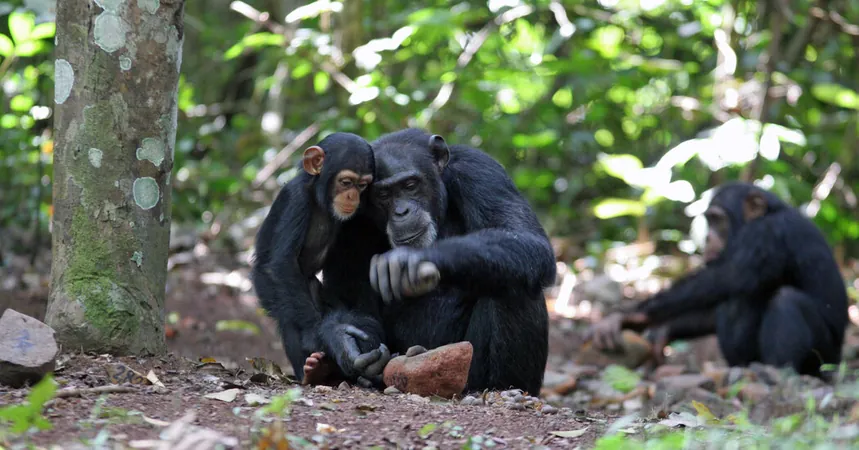
Chimpanzees Show Surprising Evidence of Cultural Learning Similar to Humans
2024-11-21
Author: Yan
Chimpanzees' remarkable intelligence and problem-solving abilities have fascinated scientists for years, but recent findings might just blow your mind! Researchers have discovered that these incredible apes not only craft tools for foraging but may also possess a form of culture comparable to that of humans.
In the lush rainforests of the Republic of Congo, chimpanzees demonstrate a sophisticated technique for catching termites. They use sturdy sticks to poke holes in the ground and then create makeshift brushes by stripping the ends of long stems. By inserting these lures into the holes, the chimps can effectively extract their tasty treats. But the real question is: how did they learn such intricate foraging methods?
Dr. Andrew Whiten, a cultural evolution expert from the University of St. Andrews, leads a team that argues these advanced tool-use behaviors indicate a type of cumulative culture in chimpanzees, a trait long thought to be exclusive to humans. Published in the journal Science, the study posits that the knowledge of these techniques is passed down through generations, evolving over time within interconnected communities.
While many animals demonstrate some level of cultural behavior, chimpanzees appear to take it a step further. The team analyzed genetic data from 35 populations of chimpanzees in Central and East Africa, correlating this information with their tool-using habits. They discovered that while some communities demonstrate complex sequences of tool use, others only use basic strategies. Notably, those displaying advanced techniques are often found to be genetically related, highlighting a potential link between social learning and genetic proximity.
Cassandra Gunasekaram, a doctoral candidate involved in the study, emphasized how the populations that rely on simple tools do not share the same genetic ties, indicating that sophisticated foraging techniques might require interactions and idea exchanges between groups. Interestingly, sexually mature female chimps, who often migrate to mate with different groups, may help facilitate this cultural exchange.
Dr. Whiten and his team advocate that this "modestly cumulative culture" observed in chimpanzees could provide insights into the development of complex human culture. While some researchers contest the interpretation, suggesting that chimpanzees could independently invent these skills, the evidence points towards a fascinating blend of individual cleverness and social learning.
Dr. Claudio Tennie, an expert in ape culture, argues that attributing the advanced behaviors solely to cultural learning might undermine the intelligence of the apes themselves. He believes that chimpanzees are capable of developing innovative solutions on their own.
Despite the ongoing debate, it's clear that these intelligent creatures exhibit behaviors that challenge our understanding of animal learning and culture. As research continues to unfold, we may soon uncover the depths of chimpanzee genius and its implications for our own evolutionary journey.
Stay tuned as we continue to unravel the mysteries of these remarkable beings and their potential connections to human-like culture!




 Brasil (PT)
Brasil (PT)
 Canada (EN)
Canada (EN)
 Chile (ES)
Chile (ES)
 España (ES)
España (ES)
 France (FR)
France (FR)
 Hong Kong (EN)
Hong Kong (EN)
 Italia (IT)
Italia (IT)
 日本 (JA)
日本 (JA)
 Magyarország (HU)
Magyarország (HU)
 Norge (NO)
Norge (NO)
 Polska (PL)
Polska (PL)
 Schweiz (DE)
Schweiz (DE)
 Singapore (EN)
Singapore (EN)
 Sverige (SV)
Sverige (SV)
 Suomi (FI)
Suomi (FI)
 Türkiye (TR)
Türkiye (TR)